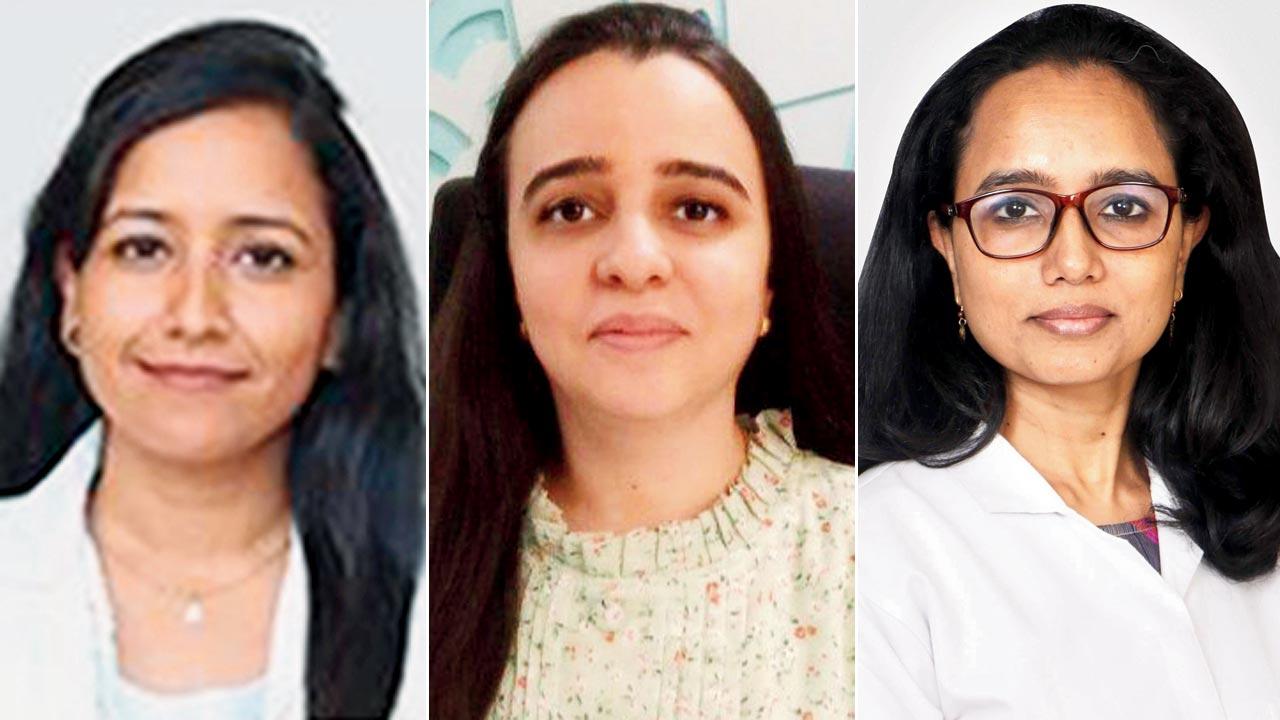They’re always on their phones and connected to the office, and neglect sleep, nutrition and exercise—is this why Gen Z is crumbling under work pressure?

Saptaparna Samajdar took a break from any work after a mental health crisis that led to hair to fall out. Pic/Atul Kamble
Saptaparna Samajdar turned all of 23 years old yesterday, but has already seen some of the worst that the corporate world has to offer. What kind of work stress does someone in their early 20s face, you ask?
ADVERTISEMENT
Samajdar, who started her first job at 21 as a content writer before she had even completed her BA honours degree in English from Delhi University, remembers how she would stay up late every night to try and complete her ever-increasing workload for a workplace that showed a total lack of empathy for work-life balance. “I was given impossible targets, like 2,000 words per day, and then there were constant changes and edits. I would have to rework the submitted material while keeping up with my daily targets at the same time,” she says.
Within months, she saw the impact of this stress on her body. “One day, as I ran a comb through my hair, entire patches of it came off. I was pretty shocked and didn’t understand what was happening,” the Nerul resident recalls.
She was diagnosed with Telogen Effluvium—severe hair loss brought on by extreme stress.
 Doctors say technology has made Gen Z accessible to employers 24x7 leaving with no cut off time from the office
Doctors say technology has made Gen Z accessible to employers 24x7 leaving with no cut off time from the office
“The doctor asked me about my daily routine and one of the biggest factors that came up was stress and lack of sleep. I barely slept; I got maybe three to four hours of sleep each night,” says Samajdar, who reveals that she also lost 15 kg over two to three months due to stress.
Last week, after the tragic death of Anna Sebastian Perayil, a 26-year-old chartered accountant (CA) at a multinational auditing firm in Pune, her mother blamed the company for subjecting Perayil to excessive workload, stress and sleepless nights.
Since her letter went public, the discourse across the country is turning to how Gen Z—the newest entrants in the workforce—is getting hit hard by work stress. While there has been criticism of a rising workaholic culture in corporate circles, others have questioned whether Gen Z seems less resilient to work pressure than older generations.
Stress and lack of sleep are a very real problems among today’s workforce, says somnologist (sleep expert) Dr Nushafreen Irani, research director at the International Institute of Sleep Sciences (IISS) in Thane. “We recently conducted a clinical study on the prevalence of perceived stress and insomnia in the 20 to 29 age group, which showed an alarming 30 per cent of this age group suffer from sleep problems. People post 30s are also facing these problems, and this can sometimes result in dementia,” he shares.
 Dr Priyanka Udawat, Dr Nushafreen Irani and Dr Hemlata Arora
Dr Priyanka Udawat, Dr Nushafreen Irani and Dr Hemlata Arora
Of course, not everything can be blamed on work pressure; it’s a combination of lifestyle issues and the changing demands of a tech-savvy world that are at play, says Dr Hemalata Arora, senior consultant at the Internal Medicine department at Nanavati Max Hospital. “They [Gen Z] are less resilient than Millennials not because of any genetic disorder but because of a lifestyle that has gone against them for many years put together,” she says.
One of the biggest issues is bad food habits—both in terms of irregular meal timings, and unprecedented consumption of processed food, more prevalent among Gen Z than any other generation, she says. “Limited sleep leads to high cortisol levels. Additionally, there is a lot more smoking and drinking among both genders, which is one of the core causes of fatty livers, along with stress and high blood pressure. Pollution, too, has hit their immunity, and they fall ill more often,” says Dr Arora.
Technology and the resulting need to constantly stay switched on and alert is where Gen Z seems to have really drawn the short straw, though. “Unlike older generations, Gen Z is always forced to be available to the office on their gadgets, so they never leave the office, so to speak,” Dr Arora points out.
In a generation that gave rise to the doomscrolling and bed-rotting trends, a sedentary lifestyle and increased screen time may be just as much to blame. Dr Priyanka Udawat, a consultant with the Department of Gastroenterology & Advance Endoscopy at Sir HN Reliance Foundation Hospital, says, “One of the main things I tell my Gen Z patients is to get off the phone after a certain time. There is a direct connection between mindless late-night scrolling and mental health, sleep disorders and overall health. Most of them are serial scrollers, their peak phone usage time is from 10 pm to 2 am. They only eat, work and sleep, resulting in an epidemic of depression and other health issues. One of my patients has developed such bad gut health due to his stressful lifestyle, that he lost all his hair.”
Odd working hours, especially among Gen Z working across different time zones at multinational companies, take a severe toll on health. “Any person on night shifts is working against nature and they tend to have both physical and mental health issues,” she says, “Additionally, they are eating out more too. Food affects mood. Higher intake of salt and sugar can give an immediate kick, but the crash that follows is too intense and often leads to depression.”
Vanita (name changed), a 26-year-old CA working at a Mumbai firm says managing healthy eating, sleeping and exercise habits is near impossible with the kind of work pressure they face. Perayil’s case is not an isolated instance. “Many of my friends who work in the Big four auditing firms face similar situations,” she says, adding that even at the smaller firm she works at, there is no respect for her personal time. “Recently, I went on a four-day break and was bombarded with calls to attend important meetings. At the end of my work day at 8 pm, I am told to work on something and submit it by 10 pm, or told to work in the first half of Saturday even though it is my day off,” she says.
Vanita recently hired a trainer to get some exercise in her schedule, but has been unable to actually get to the gym. “Today, I woke up early to work out, but ended up working at my laptop instead.”
One way to pre-empt such work-life imbalance is to thoroughly research any organisation before joining it, something that Gen Z does way more than preceding generations, says Avinash Shahri, founder at HR Yaar Consulting Services. “Gen Z is very sure about wanting a 9-to-5 job and anything more immediately puts them off. They often seek out existing employees at their prospective workplaces on LinkedIn just to see what kind of a support system they will have. This not something we Millennials did, and it did hurt our generation in terms of mental and physical health,” the recruitment expert says.
Gen Z is often thought of as a selfish generation that puts itself first, but this is a hard-won survival skill that Samajdar has learnt from her past experience. “Previously, I only thought about my salary and the company’s reputation, but now I have come to value my well being too. I learnt not to say yes to the first job I was offered, and to read the fine print first,” she says.
Now pursuing a Masters in Media Studies at Tata Institute of Social Sciences, Samajdar dedicates around three to four hours to herself as “targetless hours”. “These are hours that I will not seek to gain from monetarily at all. I write casually and read for fun. Somehow I have started to regain bits of myself, piece by piece, in the last two years,” she concludes.
30%
Of workforce under 30 suffers from stress and insomnia
Source: International Institute of Sleep Sciences
 Subscribe today by clicking the link and stay updated with the latest news!" Click here!
Subscribe today by clicking the link and stay updated with the latest news!" Click here!







